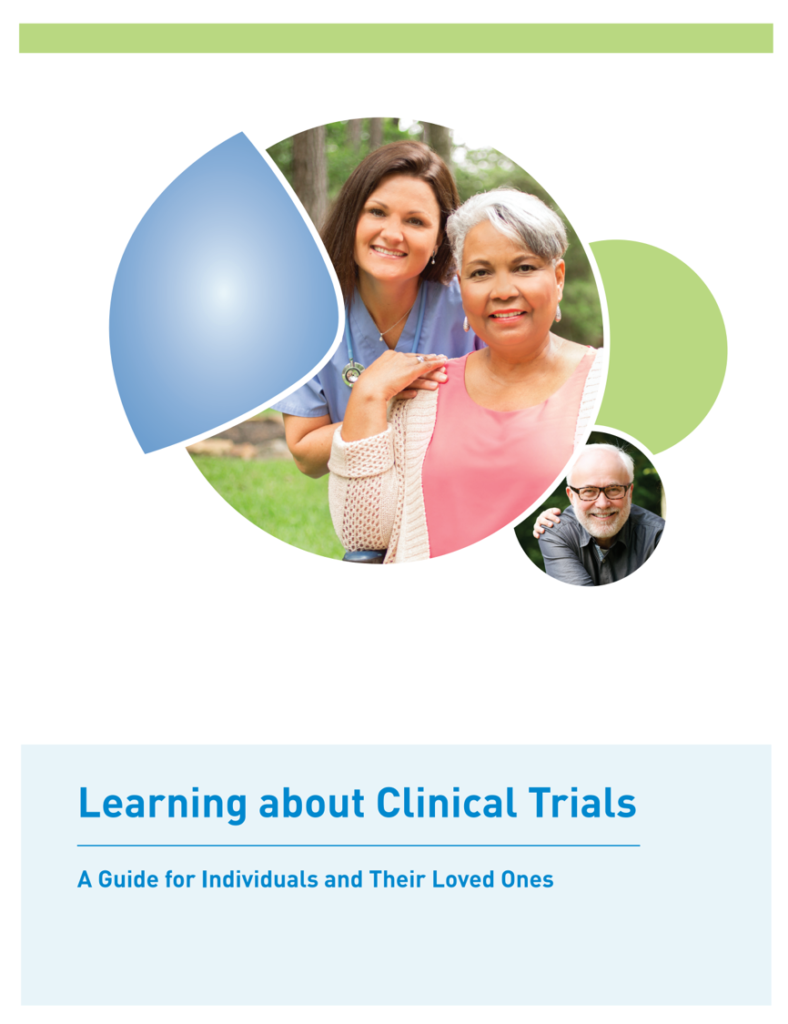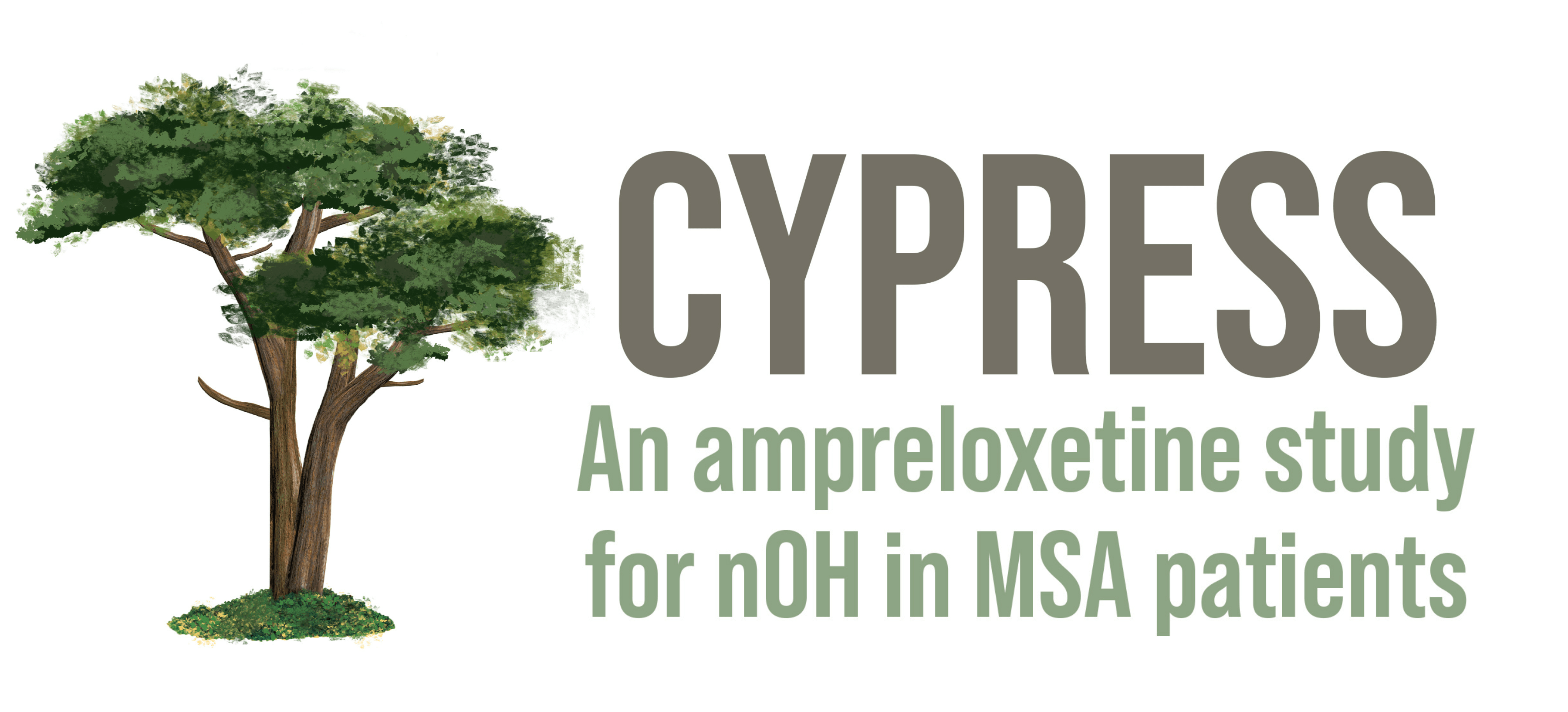
Clinical trials help researchers answer important medical questions, providing information that may help with the development of future treatment options. Clinical trials are conducted to determine if investigational treatments (such as new drugs, procedures, or medical devices) are safe and effective, so that the regulatory authority can decide whether they can be approved for use as a treatment.
Participation in a clinical trial is voluntary. You can withdraw at any time, for any reason (or no reason at all), and doing so will not affect the care you may be receiving now and may receive in the future.
 Click here for the Learning about Clinical Trials brochure
Click here for the Learning about Clinical Trials brochure
Disclaimer: the videos and the brochure were produced by Biogen, a pharmaceutical company with whom we collaborate. This material does not intend to favor one or the other clinical trial, and CurePSP remains fully impartial in its support of clinical research.
Current Clinical Trials
For a current list of available clinical trials (sourced from the National Institutes of Health website, clinicaltrials.gov), please click on the following links:
Progressive Supranuclear Palsy
Corticobasal Degeneration
Multiple System Atrophy
AIDP Study
Opportunity to participate in a research trial! The University of Florida is looking for individuals with progressive supranuclear palsy (PSP), multiple system atrophy parkinsonian type (MSA-P) or Parkinson’s disease to participate in a study testing the performance of automated imaging differentiation of parkinsonism (AIDP) software in recognizing the different diagnoses. The study is being offered at over 20 locations across the U.S. and Canada.
 The ORION Trial
The ORION Trial
A phase 3 Clinical Trial for People Living with Progressive Supranuclear Palsy (PSP).
The ORION Study is looking at a potential new medication, also called an “investigational drug”, for a condition called progressive supranuclear palsy, or “PSP”.
The ORION Study is looking to see whether the investigational drug: has an effect on the progression of PSP has good safety and tolerability (which means the body handles taking it well). About 600 people from different countries across the world are expected to take part in this study.
The study will have two parts, which are also called “treatment periods”. Each treatment period will last around a year.
CYPRESS Trial

Have you been diagnosed with multiple system atrophy (MSA) and do you experience dizziness symptoms associated with neurogenic orthostatic hypotension (nOH)? If so, you may qualify. Symptomatic nOH affects approximately 70-90% of those with MSA, with symptoms such as dizziness, light-headedness, and feeling faint interfering with one's ability to perform daily activities- especially those requiring standing or walking.
The Phase 3 trial involves 9 visits over a 20-week study treatment period, followed by an optional 2-year long-term extension in which all participants receive the investigational drug. Participants may be eligible to participate in the study remotely (e.g., from your home) after an initial in-office study visit.
Please consider joining us in taking another critical step for patients with MSA toward the goal of nOH symptom relief.
Learn More About This Study Here
Treatment of Disturbed Sleep in PSP
 UCSF is recruiting for a study to explore if specific sleep medications can improve your sleep patterns, disease symptoms, or quality of life. This is a 6-week remote clinical sleep trial in PSP, meaning you can fully participate from your own home with frequent phone calls with the study team.
UCSF is recruiting for a study to explore if specific sleep medications can improve your sleep patterns, disease symptoms, or quality of life. This is a 6-week remote clinical sleep trial in PSP, meaning you can fully participate from your own home with frequent phone calls with the study team.
ALLFTD
 The ALL FTD study is recruiting people with PSP and CBD. The overall goal of ALLFTD is to prepare for future treatment trials by building a cohort of patients at expert centers who can be available for trials, collecting data on cognitive and behavioral assessments, imaging, blood and cerebral spinal fluid, and sharing data, images, and samples from participants with other researchers to further our knowledge of FTD. ALLFTD has two arms of the study: A Longitudinal Arm and a Biofluid Focused Arm. All visits include a participant and their study partner. Those in the Biofluid Arm will take part in the study during one of their clinical visits.
The ALL FTD study is recruiting people with PSP and CBD. The overall goal of ALLFTD is to prepare for future treatment trials by building a cohort of patients at expert centers who can be available for trials, collecting data on cognitive and behavioral assessments, imaging, blood and cerebral spinal fluid, and sharing data, images, and samples from participants with other researchers to further our knowledge of FTD. ALLFTD has two arms of the study: A Longitudinal Arm and a Biofluid Focused Arm. All visits include a participant and their study partner. Those in the Biofluid Arm will take part in the study during one of their clinical visits.
The FTD Disorders Registry
 The Registry is an online database to collect information from those affected by all types of prime of life brain diseases, such as PSP, CBD, and related. Persons diagnosed, (current/former) caregivers, family, and friends can join. As a member of the Registry, you can help us advance the science and move faster toward finding treatments and cures. Join the registry here.
The Registry is an online database to collect information from those affected by all types of prime of life brain diseases, such as PSP, CBD, and related. Persons diagnosed, (current/former) caregivers, family, and friends can join. As a member of the Registry, you can help us advance the science and move faster toward finding treatments and cures. Join the registry here.